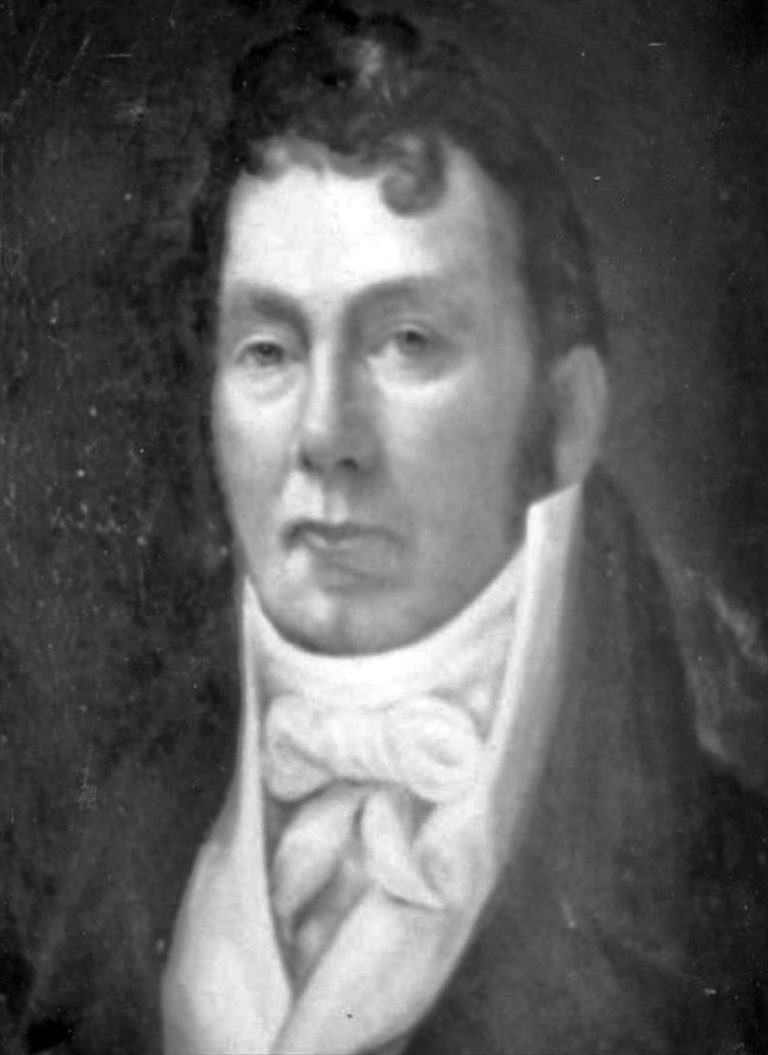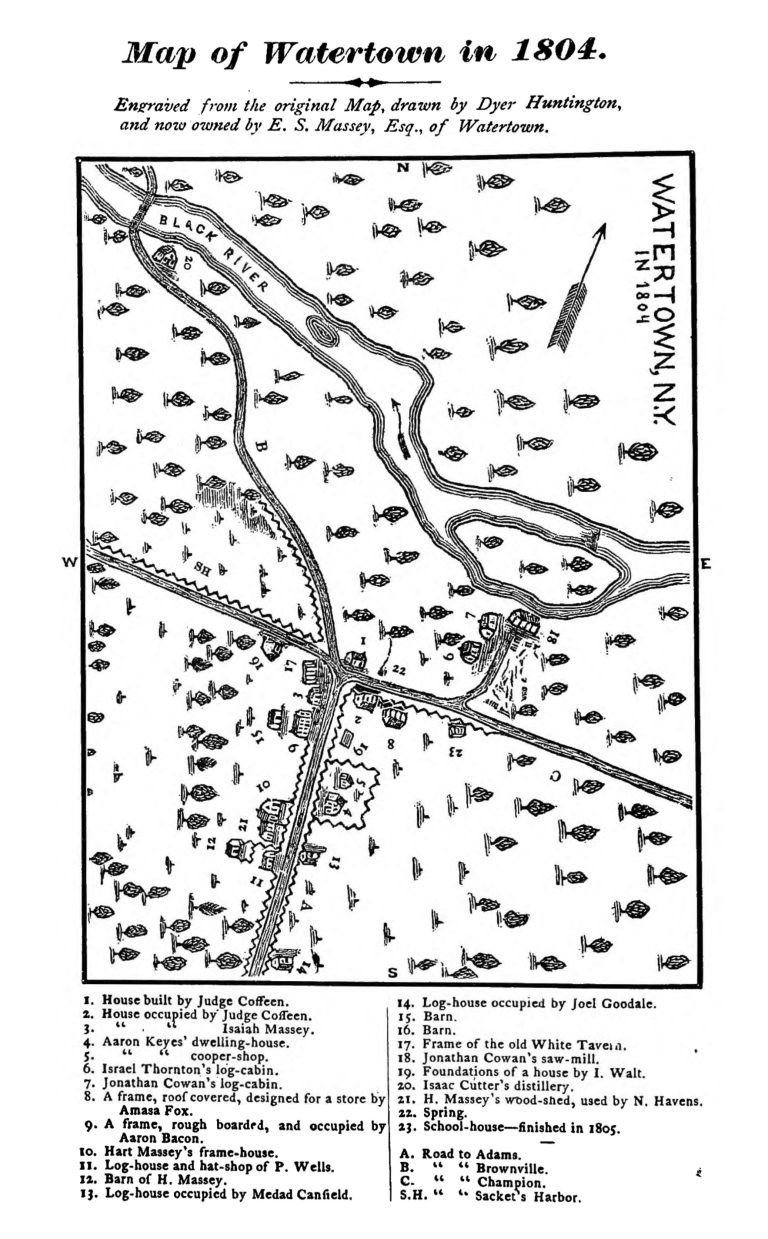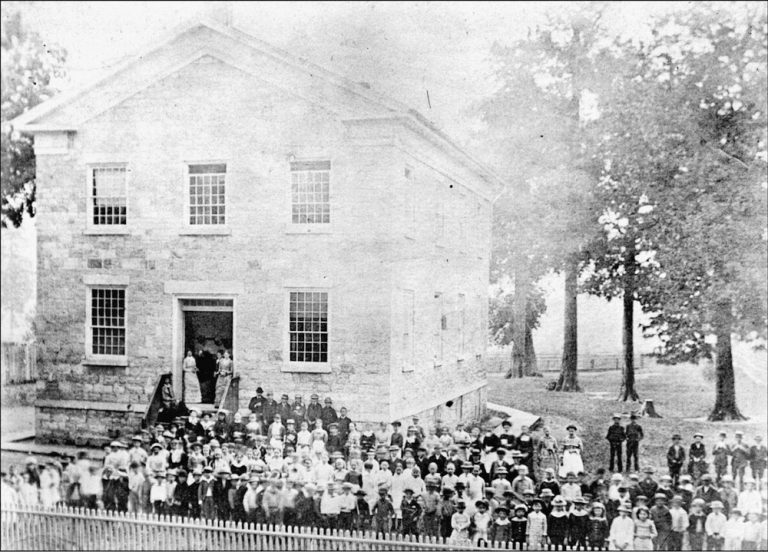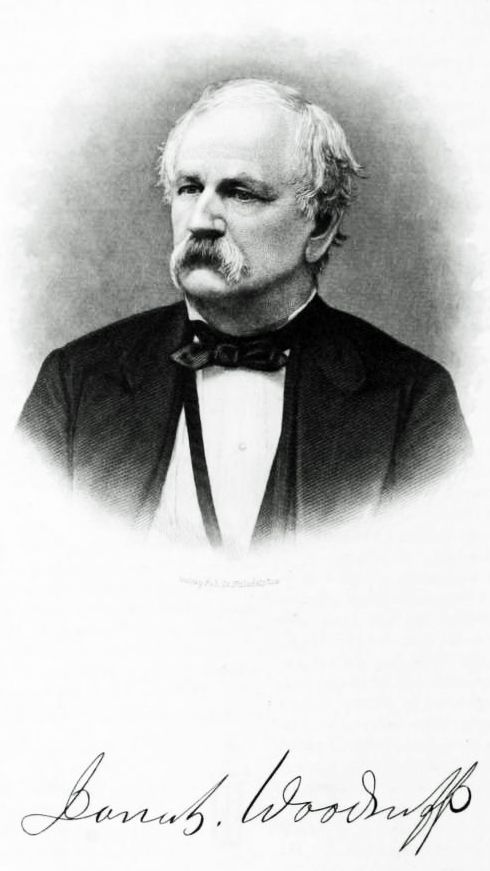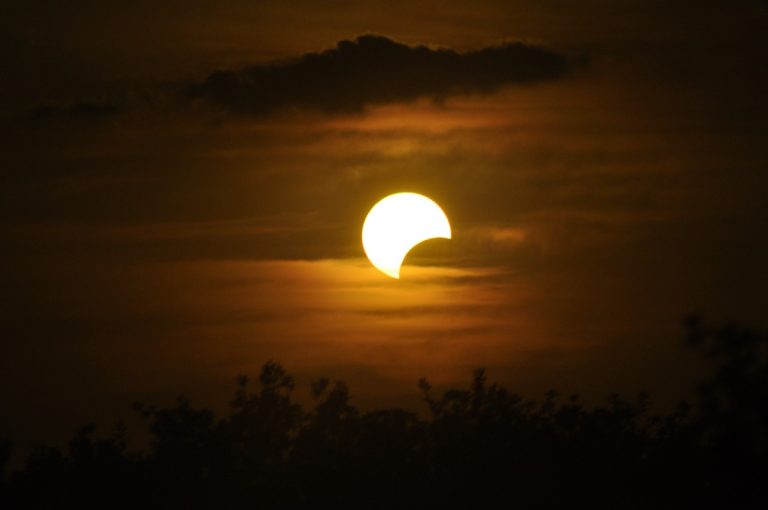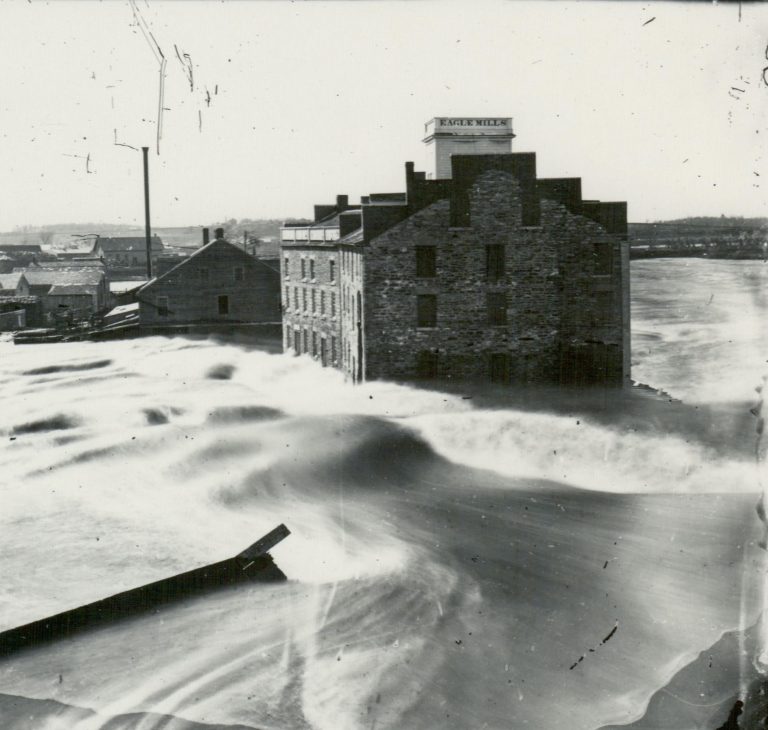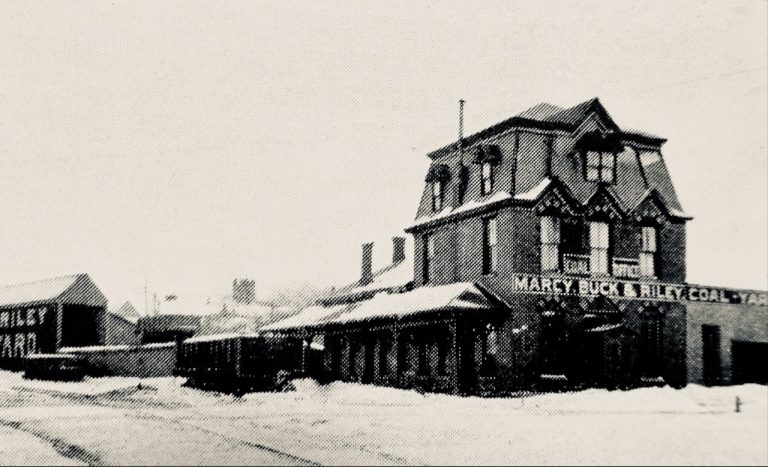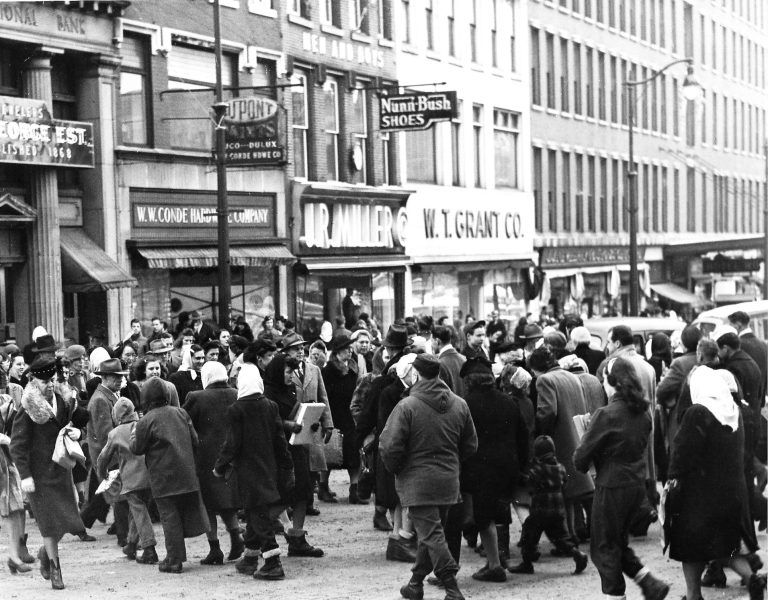Early Watertown First-Hand Accounts of The 1803 Solar Eclipse, First School, and More
The following is a portion of a very long letter to the editor published in the May 1, 1884, Watertown Daily Times. The letter was sent by A. P. Sigourney but written by his friend, Cyrus T. Huntington. His family was amongst the earliest settlers in the area, having moved from New Hampshire in 1803-04. The letter discusses a variety of subjects. Along with those noted above, there are recollections of weather-related incidents, in-depth and detailed building projects, the first wash tub, the “Red Northern Lights,” and other fascinating tidbits that will appear in other articles.
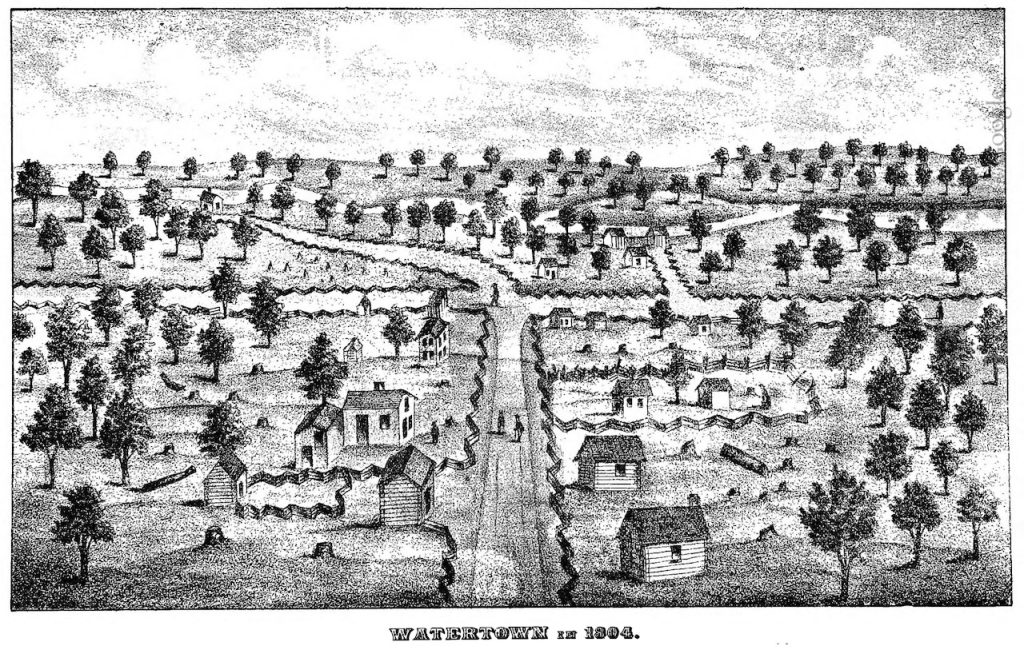
Reminiscences of an Octogenarian—Some Recollections Penned by an Old Settler—Facts and Incidents in the Primitive History of the City
To the Editor of the Times, Watertown, April 30.
Enclosed find reminiscences of events in the early history of Watertown, as furnished me by a lifelong friend, Cyrus T. Huntington, now a resident of Black River, and an octogenarian. From his youth he has been a close observer, an original thinker, and always posted in passing events and the current literature of the age; in religion a methodist, in politics a democrat.
Of his father’s family but two members remain, Mrs. Joseph Kimball of Watertown, and himself. It may be proper to say that I have read the “recollections” furnished you to Mrs. Kimball, who corroborates the statements made by her brother so far as her memory enables her to do so. Please give them a place in the TIMES, and oblige. Yours truly, A. P. Sigourney.
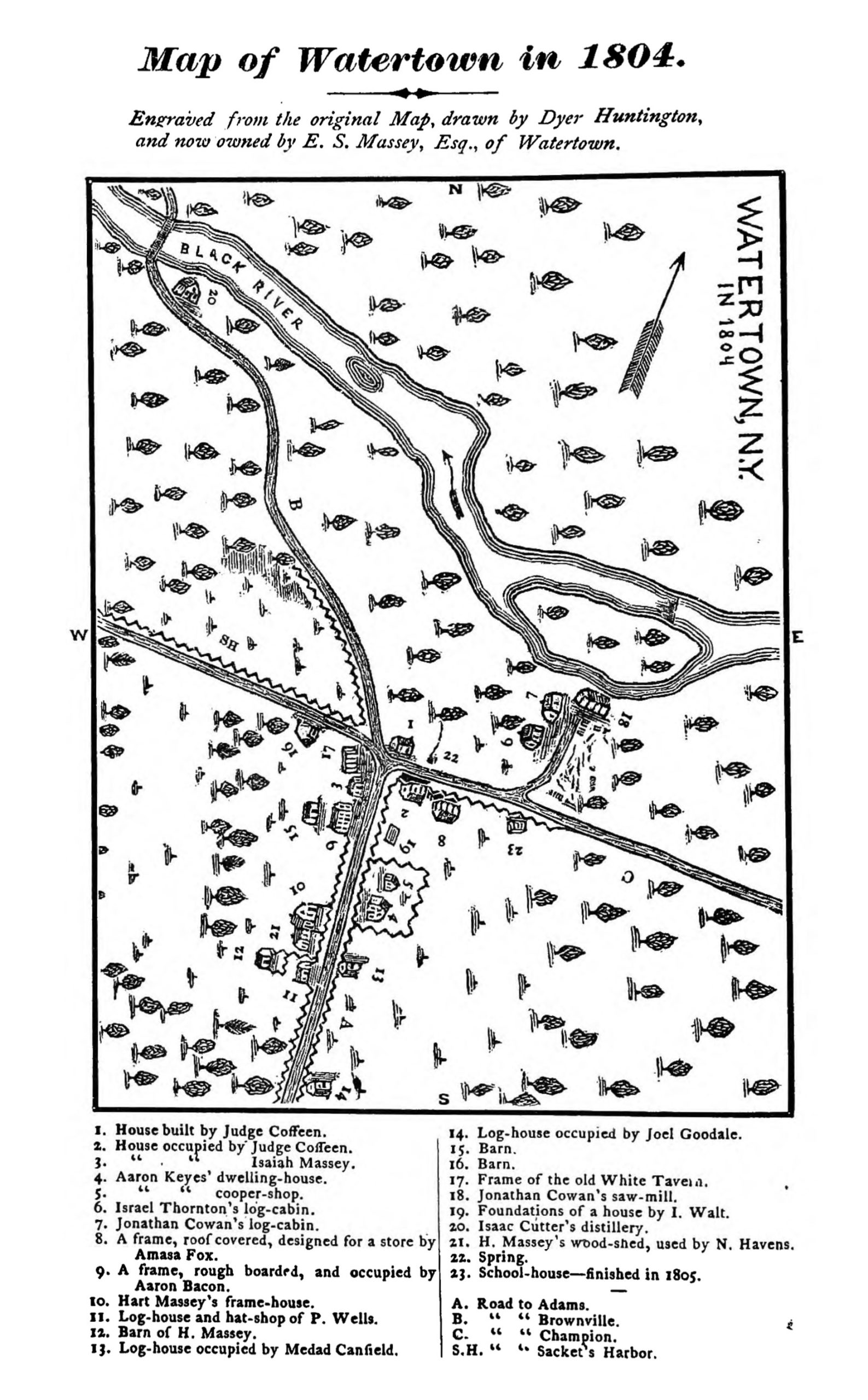
Black River, Feb. 12, 1883.
Agreeably to your wish, I have concluded to write out few of my early recollections of the first settlement of your neighborhood and town. First, I will say, that I was born in the state of New Hampshire, and county of Cheshire. Now at this writing, I don’t know of a person living that was in the town of Watertown before I was. My father, Wm. Huntington, came in the summer of 1803 into Watertown, and took a contract for 200 acres of land joining your present farm, on the west, which then belonged to a man by the name of Samuel Mack, (I will speak more of Mack in another place.)
The land that my father took up was taken in 1802 by two brothers by the name Healy. One of them cleared the timber from about two acres, where Mr. D. D. Taylor’s house now stands, and put up the body of a log house, on the north side of the road.
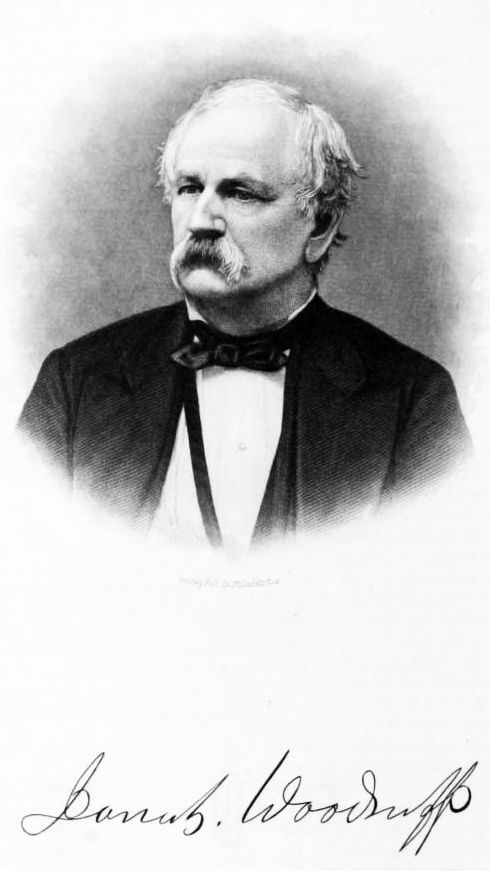
The other Healy felled the timber on a small piece and put up the body of a log-house where your school-house no stands. They became sick of the country, gave up their contract and left for home. Father entered an agreement with Jonah Woodruff, who lived a few rods east of your house, to stay with him until he could get his log house ready to live in, and returned home Monday, December 19, 1803.
Left our home in New Hampshire with two teams. Father hired a team to fetch a load of good, and arrived at Mr. Woodruff’s, in Watertown, on the 6th day of January, 1804. We came slow, the snow being deep all the way and the weather stormy. The snow was two feet deep when we arrived here. To show you how people could get along in those days, I will say, Mr. Woodruff’s house was of logs, 18 by 22 ft. with a low chamber. There were ten in the Woodruff’s family, and 10 in ours, making 20 in all, in a small house, and we were all comfortable, and happy.

The first thing to be done was to fit up our house. There was 2 feet of snow to be disposed of. For a roof, we felled hollow bass trees, cut them off the right length, split them in two, laying them on, two with the bark down, and one with the bark up, covering the joint of the first two until the roof was completed, dug stone, and built what was called a Dutch fire-place and oven, with a stick chimney, that is, by splitting out timber small, laying them up cob-house fashion, then plastering it with clay mortar to prevent fire. All the cracks between the logs were filled with the same.
We cut a pine tree, drew it to Burrville, had it converted into boards for floors, and, in six days the house was completed. The seventh we moved into it, in it we lived five and a half years, and we, as a family, have often spoken of those years as the happiest of our lives.
Your school district was organized in the spring of 1806, and I can tell the name and location of every inhabitant at that time, but it would be of not particular interest. The first school was taught, in our barn. Father had built a new frame barn the summer before, about the only frame building in the district. Some of the time the school was in the stable where the cows stood the winter before.
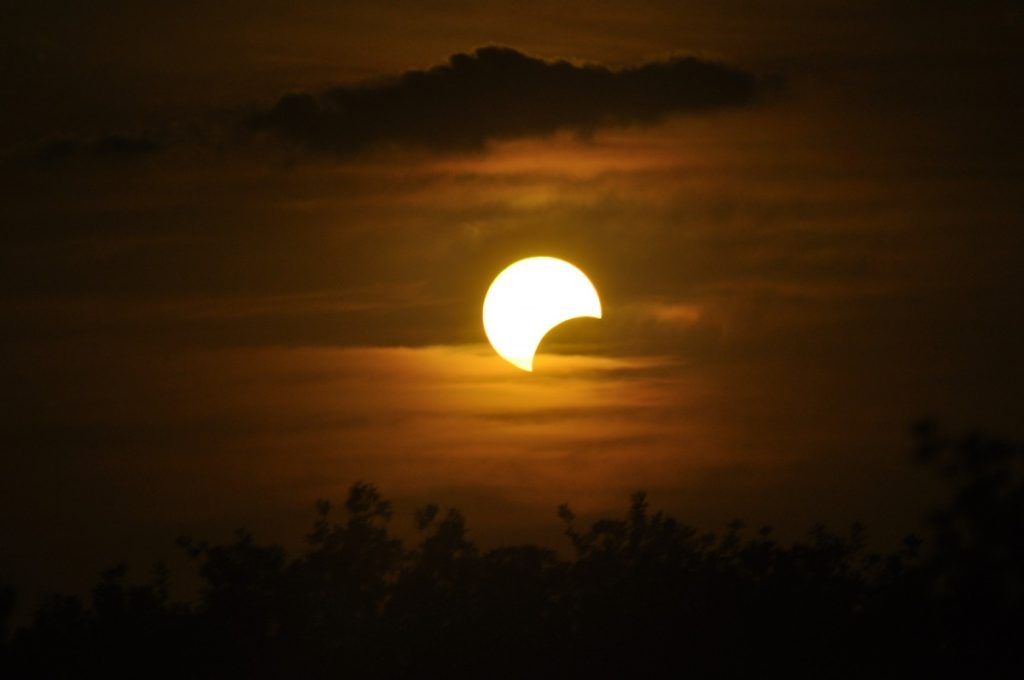
On the 16th of June of that year, there was a total eclipse of the sun, beginning about 10:00 a.m. and continuing three hours, lacking, I think, nine minutes. When it became too dark for us to study, we, the school of about a dozen scholars, were allowed to go out into the barnyard. While we were out, the hens went in and roosted on the stanchions in our school room; I remember the rooster crowed when he flew on the roost. The morning was beautiful and clear. Before eleven stars appeared, Venus shone beautifully in the southwest.
In the fall of 1807 the district built a log school-house at the forks of the road, west of your house. The school was taught there two winters and one summer, the house then took fire and burned down. In the summer of 1810 the school-house was built on the present site at the creek.
When we came into the town, Simeon, Jonah Woodruff’s oldest son, was married and lived up the road, a little east of his father’s. They had two children, a boy and girl, the girl the oldest. Felix was the first white person born in the town, he died west. Otis, Joshua Town’s oldest son, was the second, he died in LeRay a few years since.
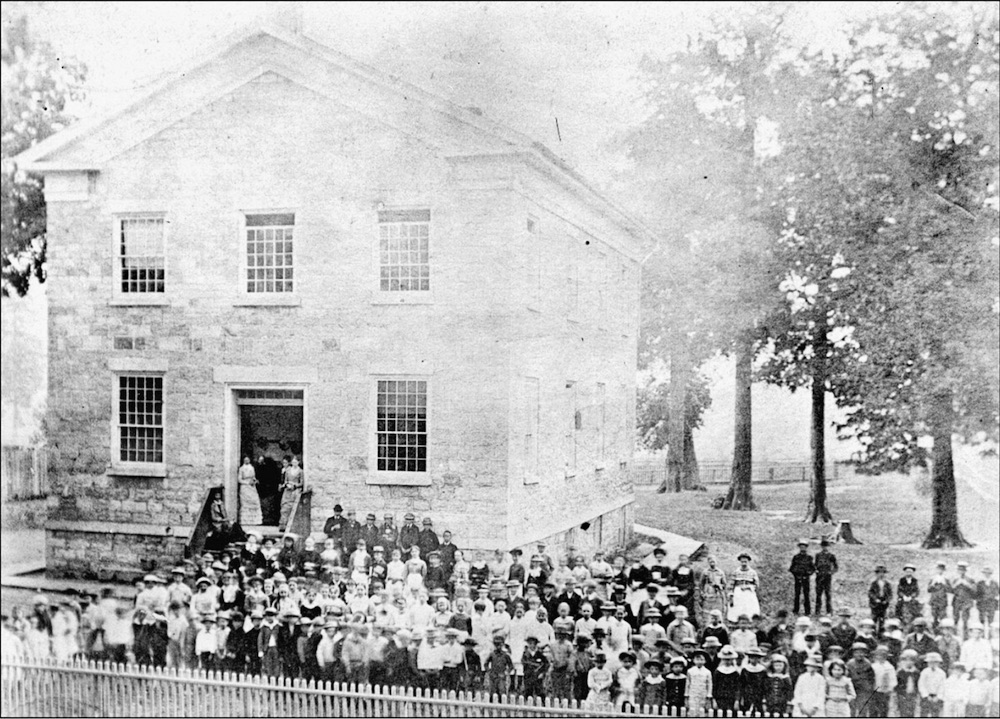
The first white child born on Low’s purchase was the son of Aaron Bacon, (the late Deacon Bacon of the First Church.) He was born in Rutland. Being the first, they gave him the name of Low; he lived about five years, and was instantly killed by a falling tree.
I will give you one more of my early recollections, and then I think I will close on this line. I saw on the flat west of your home, on the Mills farm, eighteen sheep and lambs brought together that were killed by wolves the night before. At that time, deer, bears, wolves, and foxes were plenty, with occasionally a panther.
In the winter of 1805 my father was appointed magistrate by Gov. George Clinton. In the month of April of that year the town of Watertown was organized. The first town meeting was held at our house. At this time Burrville and Watertown were rival villages; the populations were about equal. Burrville claimed to be the first, or leading village, because the first saw and grist mills were put in operation there by Mr. Burr.
The people of Burrville called the two villages upper and lower Watertown. Neither of the villages was willing to go to the other to hold the first town meeting. Finally they agreed to meet half way our house being equi-distant was the cause of its being held there. The meeting was called to order, father was called to the chair, and Thomas Converse of Burrville, was chosen secretary. That brought the meeting into working order.
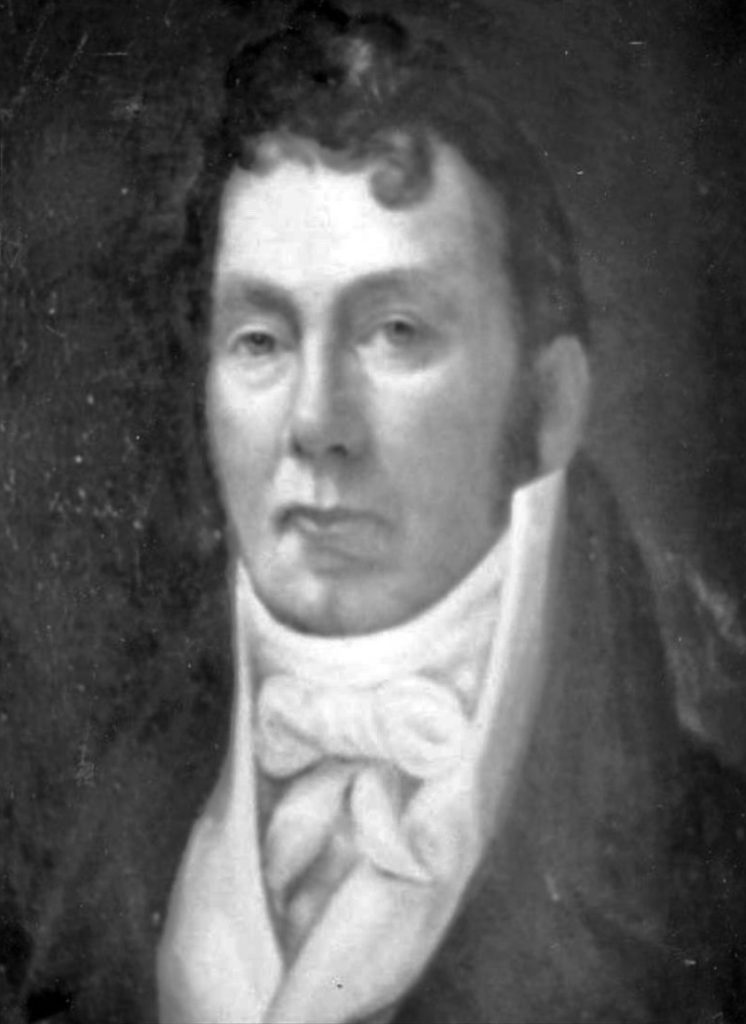
They then proceeded to elect a board of town officers, and did it by acclamation. Father was elected highway commissioner, and office he held a number of years. There were present Judge Sacket of Sackets Harbor, Ethel Brunson and Doctor Sherman from Rutland, as guests. One incident further I remember: my mother furnished a dinner of baked pork and beans, with a pot of Indian pudding baked.
